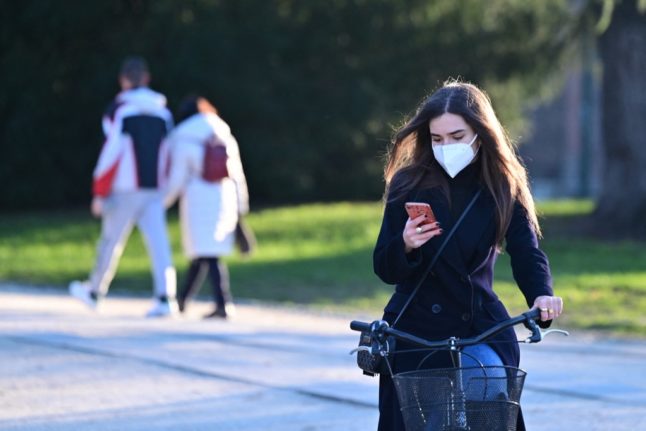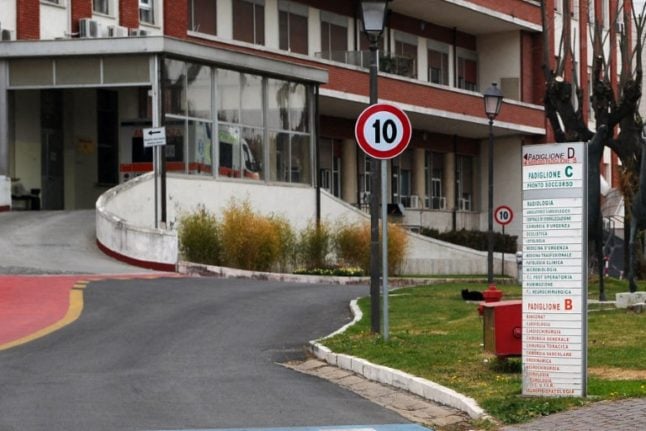Italy's health ministry has designated Abruzzo, Liguria, Tuscany and the autonomous province of Trento 'orange' zones from Sunday, based on this week's regional health data.
HEALTH
Covid-19: Four regions turn ‘orange’ as Italy tightens zone restrictions
Restrictions have been tightened in some parts of Italy from Sunday, amid concern about new coronavirus variants and the rising national Rt rate.
Published: 12 February 2021 17:44 CET
Updated: 12 February 2021 20:47 CET
Updated: 12 February 2021 20:47 CET

Photo: AFP
Health authorities issued a weekly report indicating that the Rt rate – which measures how fast the virus is spreading – had risen slightly to 0,95, from 0,84 last week.
Localised lockdowns, or mini red zones, have already been enforced in several provinces.
Umbria and the province of Bolzano also remain in the orange zone. Sicily will be a yellow zone from Tuesday February 16th, when an existing ordinance expires.
All other regions remain yellow.
This means that, from Sunday 14th February, Italy's regions will be classified as follows:
Red zones: no regions. Local lockdowns are in place in some towns and provinces.
Orange zones: Abruzzo, Liguria, Tuscany, autonomous province of Bolzano, autonomous province of Trento, Umbria, Sicily (Sicily turns yellow from Tuesday February 16th).
Yellow zones: Puglia, Basilicata, Calabria, Campania, Emilia Romagna, Friuli Venezia Giulia, Lazio, Lombardy, Marche, Molise, Piedmont, Sardinia, Valle d'Aosta, Veneto.
White zone: no regions.
With Trentino moving to the orange zone, ski slopes will not be reopening on February 17th as planned. Reopenings are only possible in yellow zones.
Italy on Friday also extended a ban on non-essential travel between regions until at least February 25th.
Travel between regions is allowed for work, health, or other essential reasons only.
In “orange zone” regions, shops are open but malls are shut on public holidays. Restaurants and bars are closed except for take-away until 10pm and delivery.
Url copied to clipboard!


 Please whitelist us to continue reading.
Please whitelist us to continue reading.
Member comments